Oscar Romero: He Gave Us New Eyes to See the World
BY NATALIE TERRY | May 21, 2015
Natalie Terry is participating in the events surrounding Archbishop Oscar Romero’s beatification in El Salvador and will be sharing reflections about her experience throughout the weekend. Natalie is a graduate of John Carroll University ’10 and the Jesuit School of the Theology of Santa Clara University ’14 and is currently in further studies at JST. Other reflections can be found here.
Entry from the journal of Jean Donovan, lay missioner on March, 24, 1980:
At five-thirty in the evening while celebrating Mass in the Convent of the Good Shepherd Monsignor Oscar Romero was assassinated. Was shot in the heart with one bullet.[1]
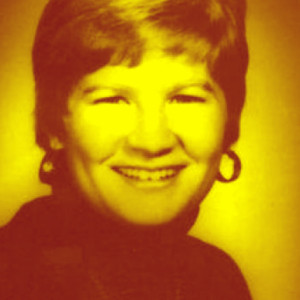 In the end, Jean Donovan would face death too. Less than a year later, on December 2, 1980, Jean Donovan and three churchwomen from North America were sexually assaulted, murdered and buried in a shallow grave in a field on a remote road not far from San Salvador by the corrupt, U.S. government funded, Salvadorn National Guard. They were four of the estimated 70,000 people who died during the Salvadoran Civil War from 1979 to 1992.
In the end, Jean Donovan would face death too. Less than a year later, on December 2, 1980, Jean Donovan and three churchwomen from North America were sexually assaulted, murdered and buried in a shallow grave in a field on a remote road not far from San Salvador by the corrupt, U.S. government funded, Salvadorn National Guard. They were four of the estimated 70,000 people who died during the Salvadoran Civil War from 1979 to 1992.
When she was killed, Jean Donovan was twenty-seven years old. She had not-so-recently graduated with a master’s degree in business from Case Western Reserve University in Cleveland, OH and had even-more-recently worked in a high paying position at the nationally known accounting firm, Arthur Anderson and Son. She lived in a beautiful apartment in downtown Cleveland with a view overlooking Lake Erie. She owned a Harley Davidson motorcycle.
And then she quit her job and, to the surprise of many, moved to El Salvador as a lay missioner. She arrived in her new home, La Libertad, during the summer of 1979 and from there, was transformed by the Salvadoran people. Jean was a child of the 60’s and 70’s but she did not engage in the anti-war sentiments of others her age. Her upbringing, in a wealthy suburb in Connecticut, left her disconnected from the sufferings of those experiencing economic poverty and left her largely unawares of the atrocities of the war in Vietnam. In fact, her friends recall that Jean perceived antiwar marches and talk of nonviolence as “dumb and unproductive.”[2] Her time in El Salvador changed all of that.
From Jean’s journals and letters it is clear that Monsignor Oscar Romero had a significant part to play in her conversion from an affluent business woman, dubbed as “Jean Donovan-Superwoman,” to a person dedicated to living a life in solidarity with the marginalized.[3] Jean faithfully listened to Romero’s weekly Sunday homilies where he called out the sufferings of the Salvadoran people and condemned violence. She was inspired by his radical compassion. Through the witness of Romero and amidst the harsh reality faced by the Salvadoran people, Jean discovered something of who she was called to be in the world. She was called to lose her life, in order to find it. She heard God’s call and responded to it.
There is an endearing story about Jean and Romero during one of his visits to La Libertad for the confirmation of youth from the local parish. On this special occasion, Jean baked Romero chocolate chip cookies and he enjoyed them so much that Jean would deliver chocolate chip cookies to the community where he lived at the Divine Providence Hospital in San Salvador every week.[4] In stories like these, we come to know that Jean’s conversion did not require her to leave behind her fun-loving, spunky demeanor, but required that she relinquish her desire for prestige and success. It was people like Romero who enabled her, and now us, to realize how our faith in Jesus demands conversion so that we, in turn, have the freedom to live the Gospel message with our lives.
Jean’s conversion was not unlike the conversion Romero experienced in his own life. Early in his ministry as bishop, Romero was hesitant to involve the Church in the complicated social reality of El Salvador. In 1977, when his friend, Fr. Rutilio Grande, was assassinated for defending the marginalized, Romero began to see his place within the Church and the world in a new way. “The scales fell from his eyes” and Romero began to challenge and denounce oppression.[5] For Jean and Romero, the deaths of their friends jolted them into action. For us, the deaths of Oscar Romero, Jean Donovan, the 70,000 people killed in the Salvadoran Civil War and every person killed at the hands of violence in our age, call us to action. This week, we mourn the death of Oscar Romero. We may not known him, we may not have even been born when he was killed, but his memory lives on in us.
Jean and Romero call each of us to discover something of who we are called to be in the world. This is what the beatification of Oscar Romero is all about. Romero’s sainthood is as much about us, as it is about him. The celebration of his beatification this weekend calls us to remember the witness of his life and challenges us to acknowledge injustice in the world. As we know, from the memory of Jean and Romero, calling to mind injustice is not enough. We must be converted by the world’s suffering. In this conversion, we will have to let go of many things, but it is here, in the giving away, that we will receive. It is here where we find life. Just as Romero gave Jean new eyes to see the world, so he has given us.
At the end of the civil war, during the first day of peace in San Salvador on February 1, 1992, a banner hung outside of the cathedral with an image of Romero and these words: “Archbishop Romero, you have risen in your people.”[6] As we draw near to Romero’s beatification this weekend, we must ask, How has Romero risen in us and how does this call us to conversion?
[1] Ana Carrigan, Salvador Witness: The Life and Calling of Jean Donovan (Maryknoll, NY: Orbis Books, 2005), 158.
[2] Ibid, 43.
[3] Ibid, 61.
[4] Carrigan, 120.
[5] Jon Sobrino, Archbishop Romero: Memories & Reflections (Maryknoll, NY: Orbis Books, 1990), 10.
[6] Marie Dennis, Renny Golden and Scott Wright, Oscar Romero: Reflections on His Life and Writings (Maryknoll, NY: Orbis Books, 2006), 113.
Natalie Terry is director of the Ignatian Spiritual Life Center, a ministry of St. Agnes Parish in San Francisco, CA. She has a Masters of Divinity from the Jesuit School of Theology of Santa Clara University in Berkeley, California. She is currently working on her thesis for a Licentiate in Sacred Theology in the area of sacramental theology. She graduated from John Carroll University in 2010 with Bachelor of Arts in religious studies and served as a volunteer with the Sisters of the Humility of Mary in Pulaski, Pennsylvania. Natalie has been a facilitator and prayer leader with the Ignatian Solidarity Network, and she serves as a lay preacher, lector, Eucharistic minister and presider of Communion services and Liturgies of the Word. She is also currently serving as the Director of Children’s Faith Formation at St. Agnes Parish. She is originally from Wynantskill, New York.

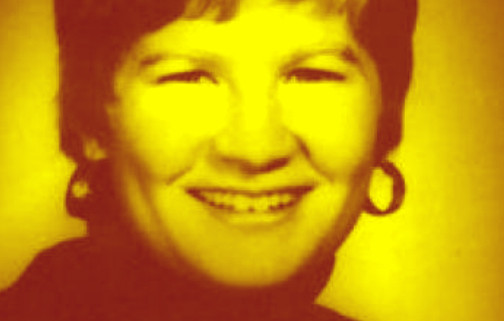
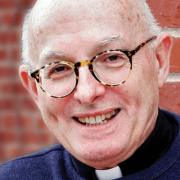
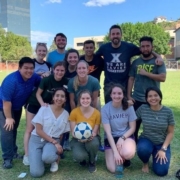

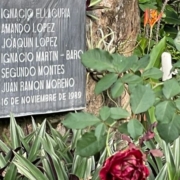




Romero may have played a part; however, I’d venture the three sisters with whom she worked with daily. as well as the people she & they served played just as great a role. In fact, our mission is still alive in El Salvador.